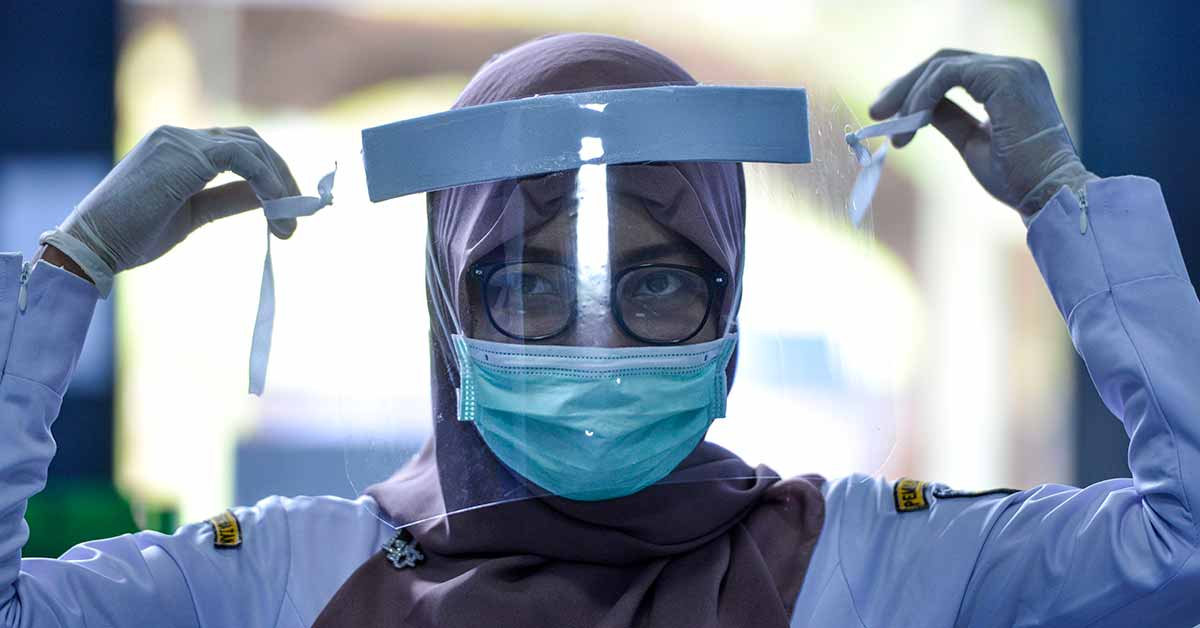The coronavirus pandemic is pushing the global economy into its deepest recession in a century, cutting world output by three percent this year, the International Monetary Fund (IMF) said Tuesday.
If the virus is contained and economies can begin operating again, 2021 should see a rebound of 5.8 percent, according to the IMF's latest World Economic Outlook.
But the authors acknowledged the difficulty in making an accurate forecast amid the rapidly changing situation.
With much of the global economy shutdown amid efforts to contain the virus and keep health systems from collapsing, the IMF warned that there are "severe risks of a worse outcome," due to the "extreme uncertainty around the strength of the recovery."
The United States (US) economy is expected to contract by 5.9 percent but see growth recover by 4.7 percent next year.
However, the forecasts assume the pandemic will fade in the second half of the year.
"Much worse growth outcomes are possible and maybe even likely," the report cautioned, "if the pandemic and containment measures last longer, emerging and developing economies are even more severely hit... or if widespread scarring effects emerge due to firm closures and extended unemployment."
The coronavirus has infected nearly two million people worldwide and killed close to 120,000, bringing travel to a standstill and forcing businesses, shops and restaurants to close.
"The Great Lockdown" - as the IMF called the global downturn - is the worst since the Great Depression of the 1930s.
It also is the first contraction since 2009 during the global financial crisis, but that episode hardly bears comparison. Though the effects lingered, the decline amounted to just 0.1 percent, and large emerging market economies were still growing at a solid pace.
This year, the only economies expected to be spared from recession are China - where the virus originated - and India, but even those countries will see only relatively paltry growth of 1.2 percent and 1.9 percent, respectively.
Must Work Together
The severe slowdown is "unavoidable," but "substantial targeted fiscal, monetary and financial" measures can soften the blow and ensure the economy is in a position to resume once the lockdowns end, the IMF said.
"Economic policies will also need to cushion the impact of the decline in activity on people, firms and the financial system," and prevent the "scarring effects" of widespread bankruptcies, the report said.
Many governments already have deployed massive spending measures in tandem with central banks that have been pumping liquidity into the financial system to prevent any breakdown.
But the IMF also said "strong multilateral cooperation is essential to overcome the effects of the pandemic."
Synchronized actions "can magnify their impact" but also can avoid some of the errors of the past century when countries adopted "futile mercantilist policies... which further worsened the global downturn."
The report called for "reducing tariff and nontariff barriers that impede cross-border trade and global supply chains."
The rebound in 2021 depends critically on the pandemic fading in the second half of 2020, "allowing containment efforts to be gradually scaled back and restoring consumer and investor confidence."
If the Great Lockdown lasts longer or if there is a second outbreak next year - or both - the projected 2021 recovery could be as much as eight percent worse than the current forecast, the report warns.
A cure is the only sure way to move forward, but "until such medical interventions become available, no country is safe from the pandemic." - AFP
